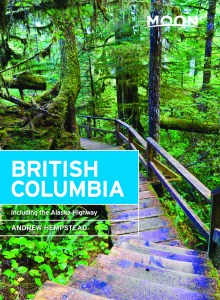Environmental Issues in British Columbia
Humans have been exploiting British Columbia’s abundant natural resources for 10,000 years. Indigenous people hunting and fishing obviously had little effect on ecological integrity, but over time, the clearing of land for agriculture and development did. Today, the province is minimizing the effects of logging operations, global warming, fish farming, and offshore oil and gas exploration that are hot-button environmental issues in the region.

As rising population numbers have put ever-increasing demands on the region’s plentiful natural resources, conservation measures have become necessary. The province has imposed fishing and hunting seasons and limits, a freeze on rezoning agricultural land, and mandatory reforestation regulations, and has restrained hydroelectric development to protect salmon runs. By preserving its superb physical environment, the province will continue to attract outdoor enthusiasts and visitors from around the world, ensuring a steady stream of tourism revenues. But the ongoing battle between concerned conservationists and profit-motivated developers continues.
Forestry
The issue of forestry management in British Columbia, and most notably on Vancouver Island, is very complex, and beyond the scope of a guidebook. In British Columbia, where a couple of mega-companies control an industry worth $17 billion annually to the local economy, many forestry decisions have as much to do with politics as they do with good management of natural resources. The most talked-about issue is clear-cutting, where entire forests are stripped down to bare earth, with the practice in old-growth forests especially contentious. The effect of this type of logging goes beyond just the removal of ancient trees—often salmon-bearing streams are affected. Clayoquot Sound, on the west coast of Vancouver Island, is synonymous with environmentalists’ fight against the logging industry. The sound is home to the world’s largest remaining coastal temperate forest. Environmentally friendly options are practiced, with companies such as the Eco-Lumber Co-op selling wood that is certified as being from responsibly managed forests.
You can see the extent of logging through British Columbia when you arrive, but visit Google Maps and click on the Satellite link. Then zoom into British Columbia—northern Vancouver Island is a good example—to see just how extensive the clear-cut logging is.

Contacts
For more information on any of these issues, contact the following local environmental organizations: Canadian Parks and Wilderness Society, Greenpeace, British Columbia Environmental Network, Society Promoting Environmental Conservation and Valhalla Wilderness Society.
Newsletter Signup
By clicking ‘Sign Up,’ I acknowledge that I have read and agree to Hachette Book Group’s Privacy Policy and Terms of Use
Pin it for Later


